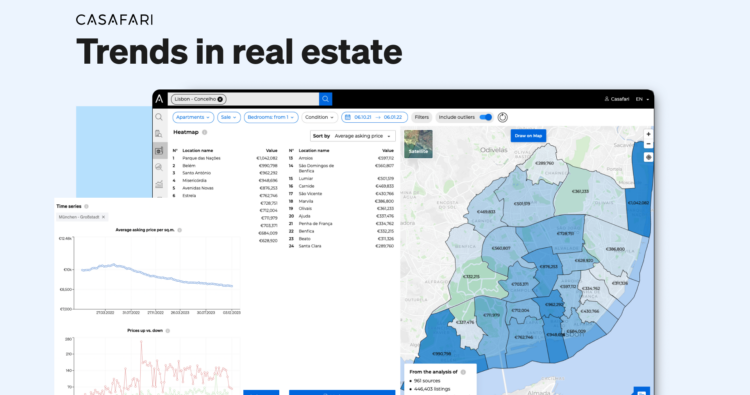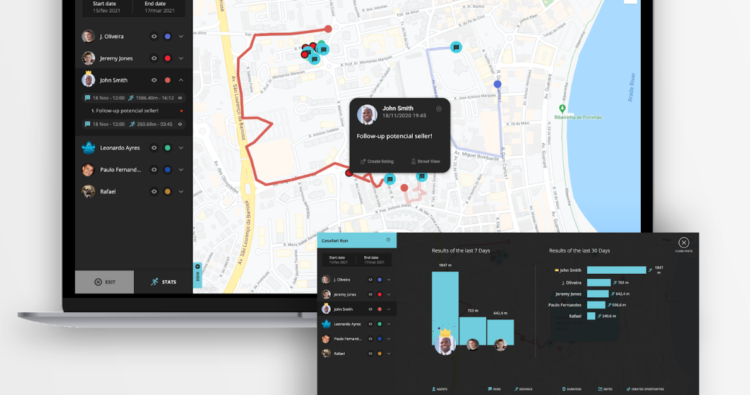The role of estate agents isn’t just to sell homes—they’re selling trust, confidence, and connection. And in a digital-first world where clients often Google you before they greet you, a strong personal brand is what sets top-performing agents apart.
This article unpacks everything you need to know—from defining your unique identity to positioning yourself as a go-to expert in your market. Whether you’re just starting out or looking to refresh your image, let’s explore how to craft a brand that not only gets noticed—but gets clients.
What Is Personal Branding in Real Estate?
Personal branding in real estate is the intentional effort to shape how others perceive you. It goes beyond marketing properties; it’s about marketing yourself as a reliable professional—your values, your voice, and your vision.
At its core, a personal brand answers the question: “Why should I trust you to help me make such important financial decisions?”.
Why personal branding is the key to success as an estate agent
With thousands of real estate agents competing for attention, clients aren’t just looking for someone who can help them—they’re choosing someone they connect with. A strong personal brand makes you memorable, relatable and, more than anything, trustworthy.
Also, today’s clients are savvy: they can spot canned marketing and empty slogans from a mile away. In fact, they’re impacted by them many times a day. A personal brand rooted in authenticity builds credibility, fosters relationships, and ultimately drives conversions.
In the end, clients do business with those they know, like, and trust. A consistent personal brand helps establish familiarity. From your social media to your email signature, the more cohesive and genuine your presence, the more trust you build.
And by personal brand we don’t just mean your logo, color scheme, or catchy tagline. It’s the emotional connection you build with your audience, the trust you earn from potential clients, and the expertise you project every time you show up—online or offline.

Elements of a strong Personal Brand in Real Estate
• Clear Positioning
Are you the luxury expert? The first-time buyer guide? The relocation specialist? Picking a niche and owning it can help you get the attention of potential customers.
• Value-driven content
Share your knowledge regularly. Market insights, neighborhood guides, home staging tips—this shows you’re not just selling, you’re educating your audience and helping them make informed decisions.
• Authentic storytelling
Don’t just talk about listings—post proper stories. Behind-the-scenes videos, client success stories, and your own journey help clients see the human behind the brand.
• Engagement, not just self-promotion
Reply to comments, ask questions in your posts, and share news. Growing a community means keeping up a conversation.
From “agent” to “authority”: how to position yourself as an expert
The truth is: clients want more than just an agent—they want a guide. An insider. A trusted expert who knows the local scene better than anyone else. The good news? You can become that person.
Here’s how to move from being “just another agent” to being the authority in your local market.
1. Choose a niche and master it
Authority comes from depth, not breadth. And a niche can be defined in many different ways.
- Geographic niches: Neighborhoods, school districts, or zip codes;
- Demographic niches: First-time buyers, investors, retirees, expats;
- Property niches: Luxury homes, rentals, new developments commercial properties.
Once chosen, it’s time to deep dive into all there is to know about it. Where are the best spots, how many properties are available, the average cost per square metre, if there’s room for negotiation prices, what infrastructure is being built in the near future, etc.
Property Investment Insights: How Data Can Help Identify Hotspots
Local Market Analysis: Why Hyper-Localized Data Matters in Real Estate
When you’re confident in your knowledge, position yourself as the go-to expert in that space across all your marketing.
2. Build an educational content ecosystem
Use your content to demonstrate your expertise. How? Here are a few ideas:
- Neighborhood Guides: Cover schools, cafes, transit, safety, events;
- Market Updates: Monthly or quarterly reports with commentary;
- “Ask Me Anything”: Address buyer and seller FAQs;
- Case Studies: Share client success stories with outcomes.
Top Tools Every Estate Agent Needs to Stay Ahead in 2025
3. Be physically present in the community
- Sponsor or attend local events;
- Collaborate with businesses (e.g., café interviews, giveaways, talks on libraries and bookshops);
- Volunteer or host workshops.
The more visible and involved you are, the more you’re seen as part of the fabric of the neighborhood.
4. Leverage social proof
Let your clients speak for you by sharing testimonials in video, screenshots of positive reviews and asking clients to tag you in photos of their new homes.
Social proof accelerates trust and positions you as someone people choose again and again.
Building a personal brand isn’t a one-time project—it’s a continuous commitment. You could have the perfect headshot, an engaging website, or even viral content, but without consistency, your brand message will get lost in the noise.
Whether it’s your Instagram bio, your email signature, a video on LinkedIn, or your tone in a listing description, remember that every touchpoint should reflect the same personality, values, and promise. That’s what builds recognition.
Consistency breeds familiarity—and in real estate, familiarity turns into trust.






